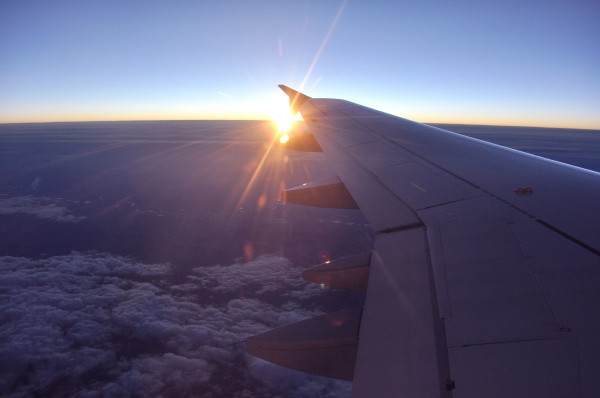The Importance Of Going Beyond Tourism
August 25, 2014

Everyone has a case of wanderlust from time to time, but not everyone puts it to good use. When people want to visit the United States, they think of metropolitan cities like New York City, Los Angeles, Chicago, Miami and San Francisco. When we think of Italy, we think of The Coliseum. With India comes the Taj Mahal. What all these places have in common is that they’re all driven by common tourist attractions that have been promoted and publicized to death.
Sometimes, people care less about exploring a place and more about sticking to what they know best. They often forget that there are places in the world that lack publicity but are just as important to visit. This isn’t to say that we should avoid attractions like the Niagara Falls and the Louvre simply because they’re popular—but it shouldn’t be where the experiences of visiting another country and exploring another culture stop.
Tourism is an artificial concept: What’s so fun about sticking yourself in a hotel with hundreds of other tourists and seeing the same over-frequented attractions as everybody else? Sometimes the best way to travel is to immerse yourself in the local culture of the place you’re visiting, because it is only then that you can learn about what defines that country. For instance, everyone thinks of Las Vegas when Nevada comes to mind, but not everyone knows about Nevada’s loneliest road in America, stretching for miles with nothing but acres of desert and sand on either side, and ghost towns dispersed in between.
I fortunately had the pleasure of going to a country not equated with the glamour and fame that countries like France and Italy have. My trip to Bangladesh (and with Bangladesh…well nothing really comes to mind for Bangladesh except for the fact that it once used to be East Pakistan) this summer extended beyond visiting family. For someone who was, for the most part, mainly exposed to the city life—I mean, really, I’m attending school in the heart of New York City—it was refreshing to jump into an environment that is so very different from NYC, where one of the main and most exciting modes of transportation is a rickshaw—especially when you’re going really fast on an empty road, where, even if it’s a sauna outside, you could still feel the wind hitting your face, leaving your hair in complete disarray; and the moment the ride stops, you feel like going again and again because of the thrill. And the best part of riding on rickshaws is that you get a 360-degree view of the scenery around you as you see acres and acres of different variations of green and that just makes you want to frolic in the fields and take a billion pictures even though they don’t do it justice.
I was opened up to a very different culture and environment I probably wouldn’t find anywhere else in the world. It’s a different kind of experience eating fried food on the side of the road just because you can’t find it delicious anywhere else, seeing cows and elephants walking and eating alongside the road as if they’ve always been there and getting your ears pierced with just a needle that might as well be for sewing.
Because it’s a relatively new and small country, very few people know about Bangladesh, which is why it’s often confused with India. Many know it as a country that is still developing, but few know that it had the longest unbroken sea beach in the world or that it has the largest shopping mall (even bigger than the Mall of America) in South Asia.
There’s more to the world than just seeing the Eiffel Tower. For a generation that is dependent on the Internet for information, we should take advantage of the fact that the world is not flat, as cliché as that sounds, and that information about less popular places is at the tips of our fingers. I’m not suggesting risking one’s life to go to the jungle to discover animals like the Royal Bengal Tiger (though I had the opportunity to do exactly that this summer). What I am suggesting is visiting places unique to a specific country. I visited the oldest archaeological site in Bangladesh that used to belong to a king believed to have revived his soldiers when they died in battle by throwing them in a well, only for them to come back alive—and when his enemy found out, he had a piece of beef dropped to destroy the sanctity of the well. Had I not researched Bangladeshi landmarks, I would have never discovered this place, nor its story.
Publicity is often more about quantity, as in money, rather than quality, which is why many countries are overlooked. Instead of following the bandwagon, it’s important to carve out one’s own journeys to exotic places. It’s then that we probably no longer have to share our memories and experiences with millions of other people. Our memories and experiences can be our own.











